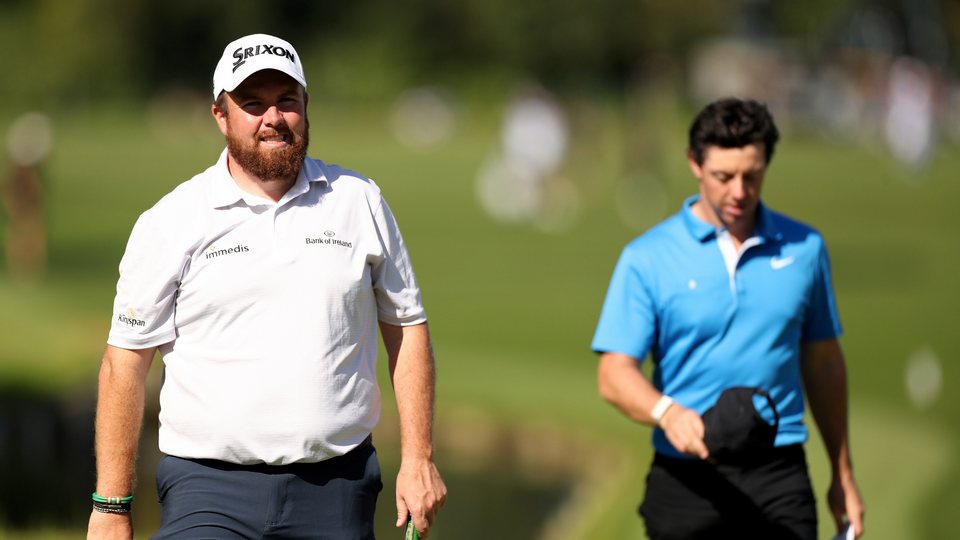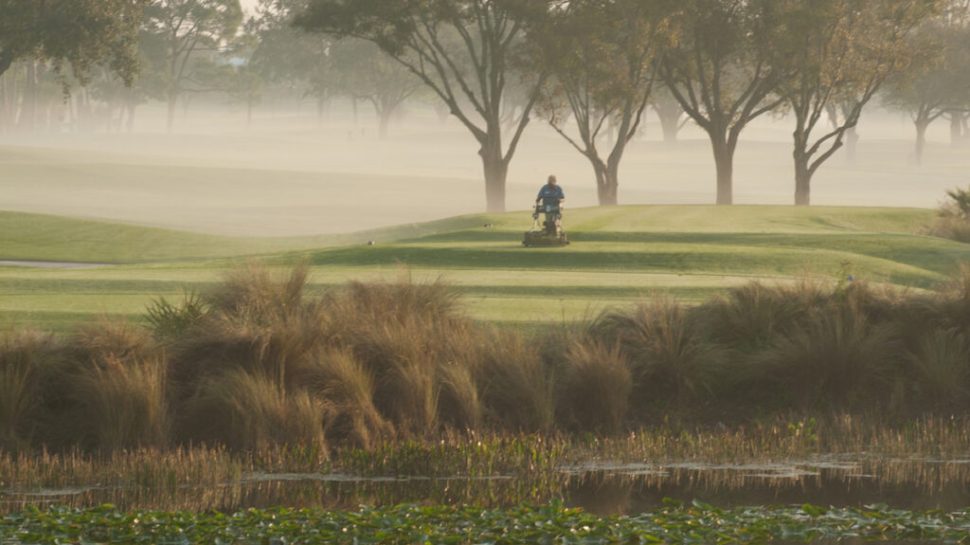
Estimated reading time: 9 minutes
All golf courses have a close and daily intersection with the environment. Until recently, the forces pushing for golf course development and those representing environmental advocacy groups were miles apart philosophically -- golf on one side and those promoting the environment exclusively on the other.
Each group espousing vastly different and diametrically opposed agendas with battle lines drawn and sharp critiques stated with little quarter given.
Yet, the relationship between the two forces is in a far different place today as golf courses have recognized and championed the usage of less pesticides, decreasing the amount of water usage and by leaving in placer natural areas whenever possible. There are now healthier and more productive intersections not only with golfers but with environmental organizations. All is not a lovefest but the general direction seems moving towards achieving mutual collaboration and respect.
Stewardship of the land is a central link in cultivating even deeper and more meaningful relationships. The bridges in place today will need to be made even sturdier in years to come as future issues inevitably rise and past conflicts can easily spiral back to earlier misunderstandings and outright conflicts.
Today marks the actual celebration of Earth Day and the connection between golf and the environment is an ongoing and daily concern.
Those on the front lines are the superintendents -- entrusted in promoting the game of golf but doing so with a far greater appreciation and understanding of what role the environment must play. More so than what was done with past generations.
Today's superintendents have become the clearest advocates in promoting not only healthier turf but forging meaningful dialogues with those in the environmental community. The former "us versus them" has now moved more towards a "we" association.
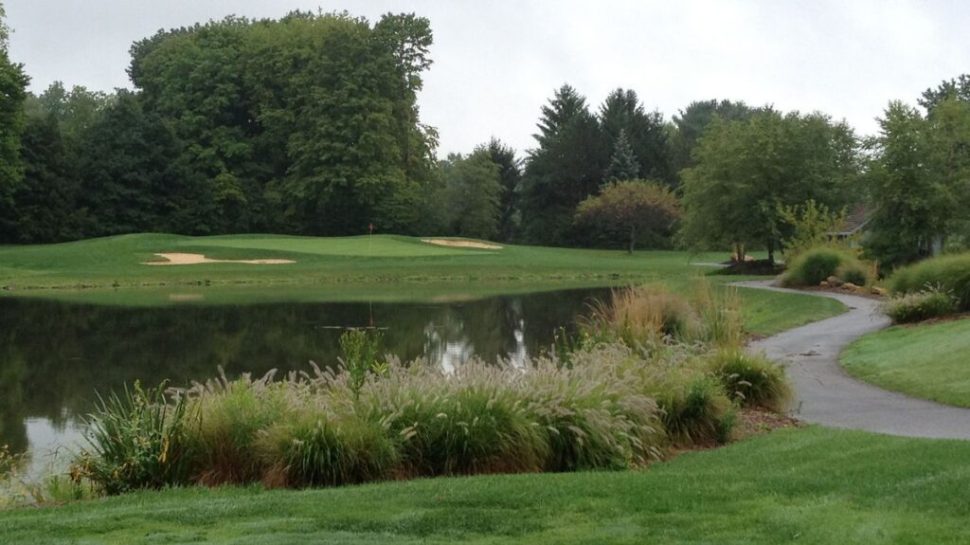
Future conflicts may indeed develop but the floor for a broader understanding has been seeded. Final outcomes do not have to be marked via a zero-sum result with one side winning and the other losing.
The challenges in keeping golf vibrant is a clear challenge all superintendents face. There is also the critical link in promoting the sport via an environmental awareness that can develop meaningful partnerships centered around collaboration and not confrontation.
Three superintendents were reached out to provide comments on this subject. Each either represents or has been involved with different types of facilities -- public, resort and private. Each is also from different parts of the USA and each clearly has a focused perspective on what today's challenges are and how positive outcomes can be implemented in the years ahead.
What does Earth Day mean for you as a course superintendent?
MEIKLE: It’s our responsibility as golf course superintendents to make smart choices that can have a lasting effect on the environment. Using an IPM approach is the best way to handle the ever-changing conditions on a golf course. We all can make a difference.
NEUNSINGER: Earth Day is not just a date on the calendar. As a parent trying to make sure there are natural resources available in the future and someone who works with dirt under my fingernails daily, I understand just how important each day is to protecting the environment.
WILKERSON: An opportunity for focus to be directed to the environment and the current challenges to preserve and protect it.
What major step should superintendents be doing that many are not doing now?
WILKERSON: Creating natural areas within the course of play, and including that in your long-term goals going forward.
NEUNSINGER: Looking for ways to reduce their inputs (from water usage, pesticides and fertilizers) and actively looking for opportunities to use products that are made from recycled materials, can be repurposed, or are more sustainable.
MEIKLE: I think one thing all warm season superintendents can benefit from is the use of salt to help control weeds. I have over twenty years of IPM experience and nothing works better that salt on goose and crab grass! I see too often superintendents using the same herbicides over and over again only making the weeds more resistant to the herbicides.
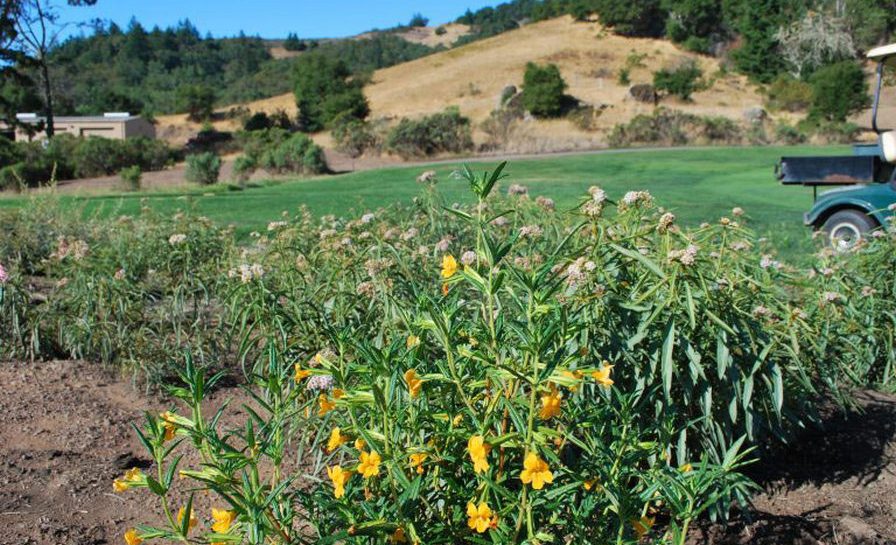
In what ways are your communicating your course objectives to players / members?
NEUNSINGER: Monthly newsletter helps me stay connected to our membership. I am new to my club and look forward to them seeing how sustainability efforts can be integrated into great course conditions and experience.
WILKERSON: We are Golf Course Sanctuary Certified by Audubon International. We use that as a catalyst to promote natural areas, display seasonal educational posters and host educational seminars about the flora and fauna in the area.
MEIKLE: I’m letting them know we are changing the grass from Bermuda to sea shore paspalum. Sea shore paspalum is more drought tolerant and is less likely to get weeds in it because of its dense canopy. The sea shore doesn’t go dormant in the winter which is our busy season.
Do you have a process in place where golfers can provide feedback?
MEIKLE: Yes, through the hotel survey and on line.
WILKERSON: Our members have a direct line to the office and an online request form. We provide Q & A opportunities at each nature presentation.
NEUNSINGER: During committee and membership meetings feedback/questions can be asked. I also find it important to spend time in the pro shop on Saturday mornings and being available for comments or questions.
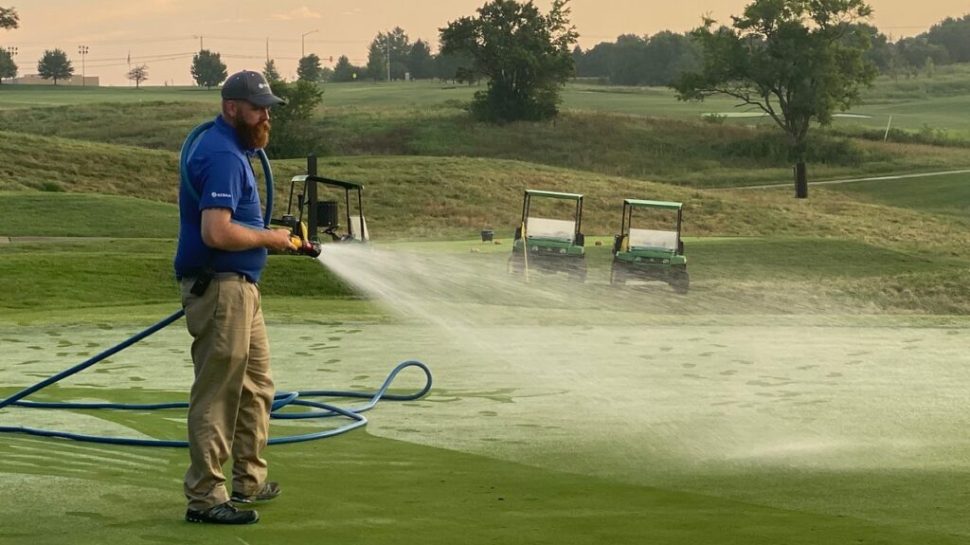
How has your daily operation evolved over the last 5-10 years and what benefits have been derived from such actions?
WILKERSON: We have increased our focus on the community nature preserves, developed and increased our native grasses and plant growth at the lagoons and ponds on the two courses. We have added a naturalist to our staff to supply information concerning our natural resources.
MEIKLE: The biggest change for all the courses on the Kohala coast is the amount of fertilizer the golf courses use. Ten years ago, we fertilized wall to wall every 8 to 10 weeks. We now use galaxy slow release fertilizer and now only fertilize two times a year.
NEUNSINGER: Clearly clean energy and renewable programs have made the biggest impact over the last decade. From solar power to recycling, those programs 10 years ago seemed unpopular and now are staples of our daily lives in one way or another. I am much more aware of my actions and do my best to compost, recycle, and make decisions that are intended to support Mother Nature.
How closely do you work or keep in touch with key environmental groups in your area regarding your daily operations?
MEIKLE: I don’t work closely with any organization, but the Hawaii Superintendents do get together and put a best practice booklet together, that goes over in detail certain environmental practices that have worked at different properties.
WILKERSON: We have a 200-member nature club in our community that provide insight and feedback. Monthly Green and Grounds committee and specialty groups meet monthly.
NEUNSINGER: I do my best to communicate via social media, email, and phone with advocacy groups and governmental agencies. However, I think educating the non-golfing community is important as golf often has a negative reputation for water usage and the assumption that we use lots of pesticides and chemicals. I believe that superintendents are environmental stewards and we can communicate that better.
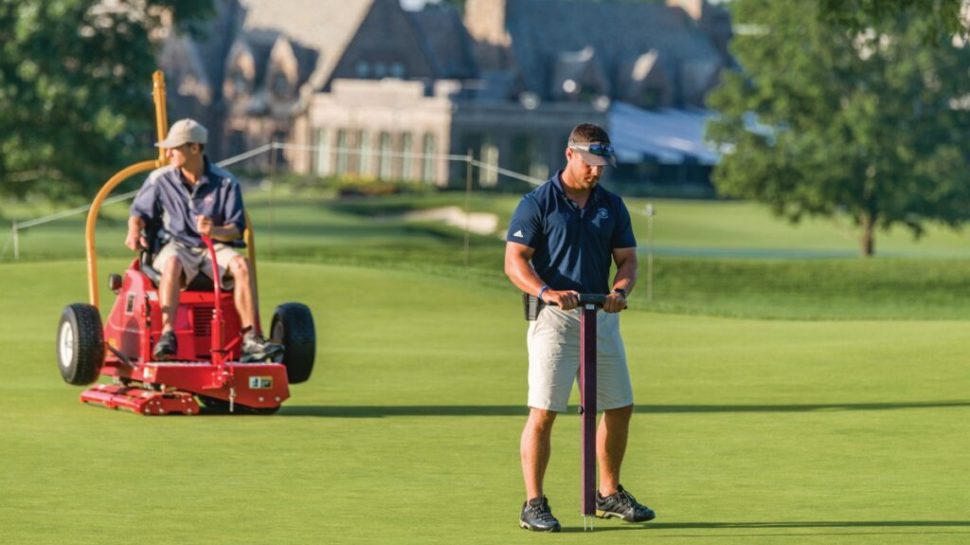
The biggest issue going forward concerning golf and the environment is what and how do you see such situations working out in the years ahead.
NEUNSINGER: I think that water usage and availability in the Western US is the biggest concern. With over a decade of drought and rising costs, water is our most precious resource. I feel confident that with the help of our industry and university leaders, we will continue to advance newer turf breeds that require less inputs.
Overall, I think there needs to be more efforts globally to address climate change and implementing policies to slow down the rising global temperatures.
MEIKLE: I think one of the biggest concerns for our industries is over regulating pesticides. Pesticides are one tool that if are taken away make are jobs more difficult. We no longer have the ability to rotate insecticides that are not restricted. Talstar is a restricted use insecticide on golf courses, because they might kill salmon. Yet home owners can buy Talstar from Amazon with no training and apply the chemical.
In Hawaii the chemical “Dive” is banned from the State because of potential water contamination. A home owner can buy it on Amazon with do-it-yourself pest control.
The State needs do a better job regulating pesticides coming in from outside venders.
WILKERSON: Increased stress to preserve limited, undeveloped areas, water quality issues from various pollutants (salt water, roadway runoff, etc.).
***
The Participants
Jay Neunsinger
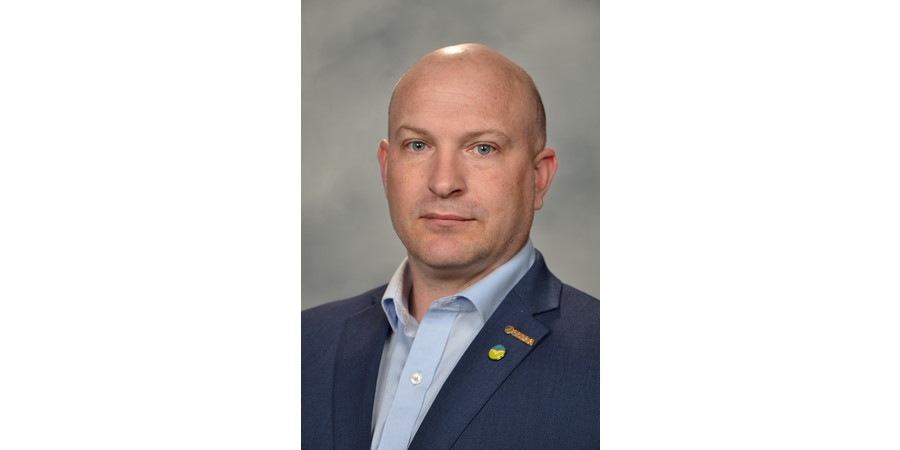
Superintendent at Richmond Country Club in Richmond, California. He has received multiple GCSAA/Golf Digest Environmental Leaders in Golf Awards including the overall National Public winner in 2017.
Prior to Richmond CC, Neunsinger was superintendent at Boundary Oak, a public facility, located in Walnut Creek, CA.
Mitchell Wilkerson
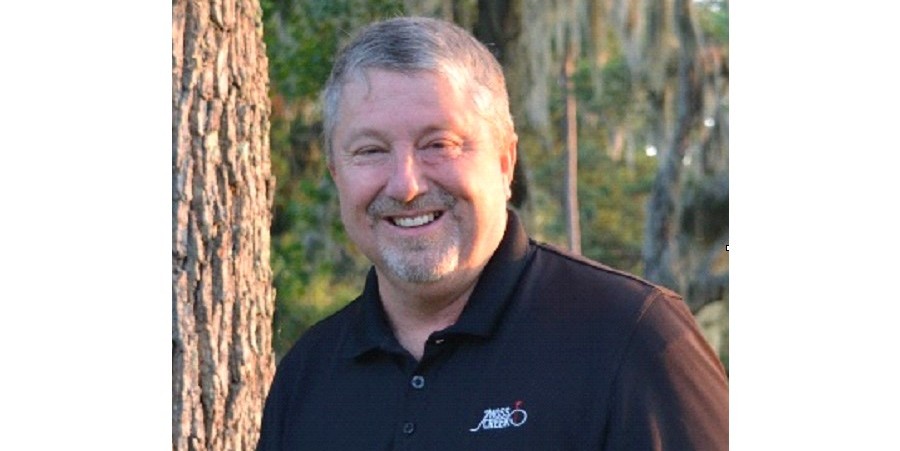
Director of Golf and Grounds Maintenance at Moss Creek Golf Club at Hilton Head Island in South Carolina.A graduate of Mississippi State in Turfgrass Management and has been a Golf Course Superintendent for 35 years and a past president of the Carolina’s GCSAA in 2008.
Moss Creek’s two golf courses became Certified Sanctuary Golf Courses in 2012 under his direction. In 2021 he was awarded the Innovative Conservation Award from GCSA, a worldwide award for exemplary, long-term commitment to the environment.
Scott (Kimo) Meikle

Born and raised in Hawaii and have been in Golf Maintenance since 1996. Started as a spray tech at Waikoloa, Assistant superintendent at Mauna Lani, Superintendent at Waikoloa and Four Seasons, Hualalei. Now Director of Golf Maintenance at Mauna Kea Beach Resort.


